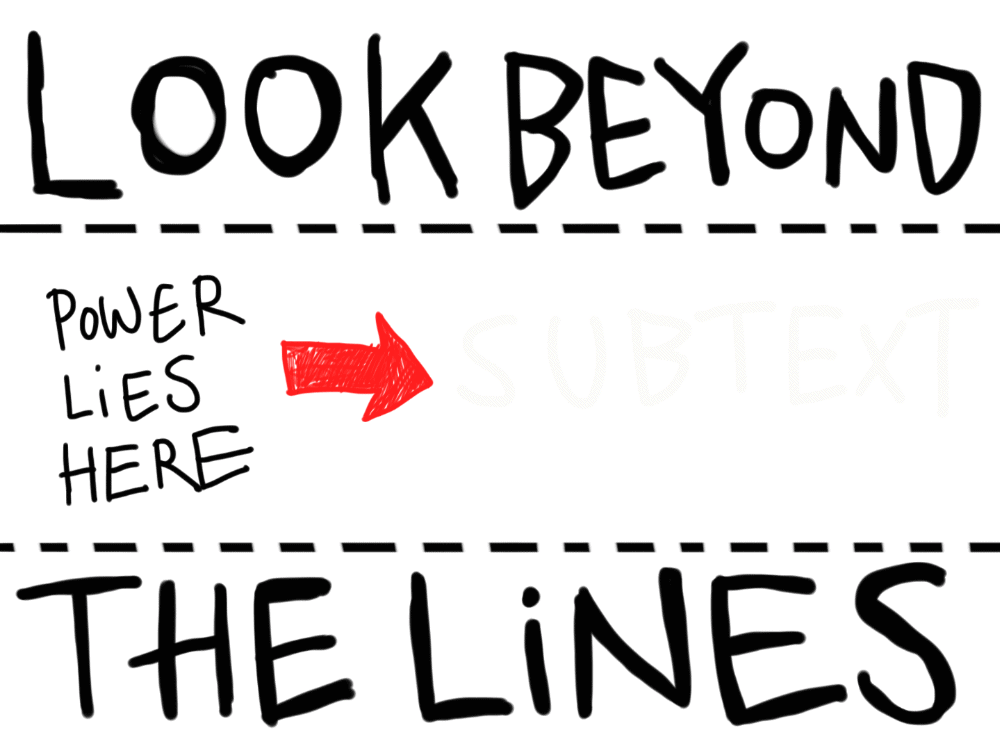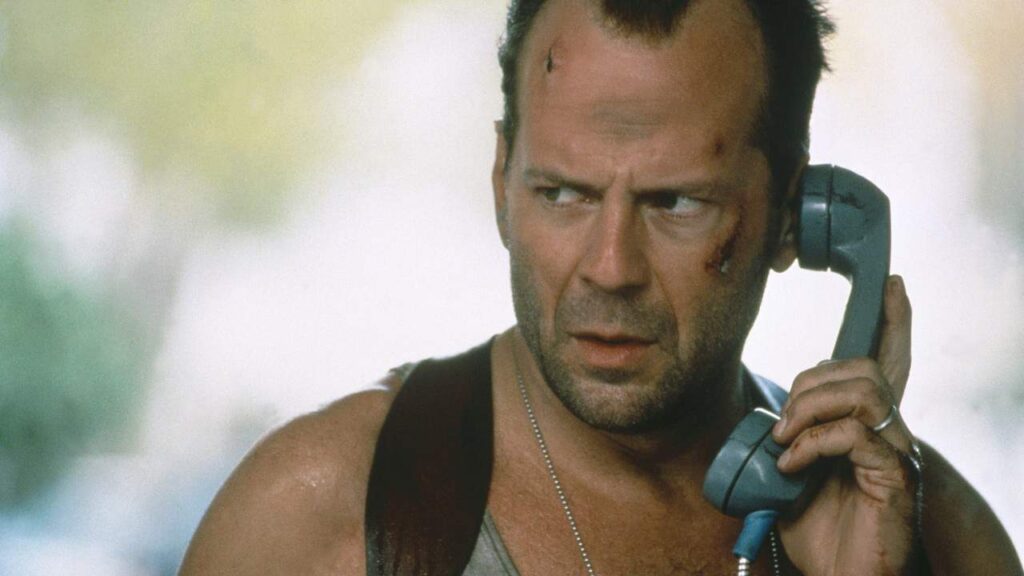
by Jim Cirile
READERS are the enemy. Reviled by writers the world over, they exist solely to prevent a writer from getting a foothold in Hollywood. With one mighty word–PASS–they will shoot down the script you labored over for weeks, months, even years.
They’re all, every single one of them, vindictive, frustrated wannabes who view every submission with contempt; and if your piece has any merit at all, they will stomp it into oblivion in order to cover their own feelings of failure and inadequacy.
You know, I used to actually believe all that. But then a strange thing happened–as the years went by, I got fewer and fewer PASSES, and more and more CONSIDERS. This didn’t jibe at all with my perception of readers. Because surely, ALL my scripts were great, and these people were just idiots. So how could it be that as I became a better writer, the coverage got better? It made no sense.
WHAT THE HECK IS COVERAGE?
Every single script submitted to an agency, studio or production company is “covered” by a reader. That reader may be anyone from an unpaid, unknowledgeable intern to an assistant or junior CE (creative executive) to a razor-sharp professional reader. These readers determine whether or not anyone else in that company will ever read your screenplay. Said reader will evaluate the submission by way of a reader’s report, also known as “coverage.”
Coverage generally contains a logline, character breakdown, synopsis, a page or two of commentary/analysis, and finally a bar graph rating your script from Excellent to Poor in the areas of Structure, Commerciality, Major Characters, Minor Characters, Dialogue, Artistically (AKA Writing or Execution,) Premise, Visual Elements and Title, along with the edict PASS, CONSIDER, or RECOMMEND for both script and writer.
This coverage is generally confidential (seldom shared with the writer.) If you are lucky enough to get a CONSIDER (less than 10% of most submissions) your script is kicked up to the next level, and the script will be added to the “To Be Read… Eventually” pile of the Creative Executive or Agent (or their assistants, most likely.)
By the way, hardly anyone ever gets a RECOMMEND, because by giving one the reader is sticking his or her neck out and saying “Drop everything and read this NOW!” If the agent or exec doesn’t agree with the reader’s assessment and resents the time spent reading the script, that reader may not be taken seriously in the future, or worse, could be out of a job.
So bear in mind there are usually three levels of consider: “Strong Consider,” “Consider,” and “Consider with Reservations.” These allow the reader to show their enthusiasm–or lack thereof–for the material while stile remaining safely in the CONSIDER category.
I founded Coverage, Ink. as a way for any writer to get pro-level feedback from real studio and agency readers for a reasonable fee. I had built a network of the best readers around for developing my own material (yes, I often submit to my own readers, paying the fee, under an alias!) and made this network available to others.
The response far exceeded my projections; obviously we were filling a need for low-cost, pro-level feedback. But as I read the coverage coming back from my readers, a pattern emerged. Our clients were making the same five fatal errors over and over.
And the CONSIDERS? Not so remarkably, they were not making these errors. How simple it would be if somebody simply pointed out these flaws! Could all those passes become considers?
And so we present the five fatal flaws which immediately limit your chances with the studio reader. Learn to spot these in your own script, and you may very well CONSIDER YOURSELF… one of the family.
 1) CAN YOUR DEPTH OF CHARACTER BE MEASURED IN MILLIMETERS?
1) CAN YOUR DEPTH OF CHARACTER BE MEASURED IN MILLIMETERS?
This is by far the most common mistake–2-dimensional characterization. It’s hard for a reader to care about a 2-dimensional character. Remember, your goal is to someday have a great actor playing your lead role. Well, great actors will fight to play someone who is complex, richly detailed and interesting.
Does your character have a backstory? Giving the character family, friends, hobbies, quirks, peccadilloes, idiosyncrasies, etc., goes a long way towards building a believable character that we want to watch a movie about. Does he or she have a dramatic flaw or a goal?
What personal problem does this character need to solve? How can they arc or change? What can they learn during the course of the story, and how can it positively affect their character and enable them to resolve their issues? This is character arc 101. And yet, this simple concept is ignored in over 85% of our submissions.
Take a look at your script. Set up your character’s internal conflict in Act 1. Resolve it in Act 3. For example, perhaps your character lacks self-confidence. By the end of the script, she should have tackled her big problem and gained self-confidence.
Or go the other direction: Your character is an egomaniac, full of himself. How can he learn humility? Figure it out.
And as Michael Lent incisively observed in a recent column, if your script is under 95 pages, that should be an immediate red flag–what’s likely missing is depth of character, which needs to be established in the form of character-defining scenes in Act 1.
2) WE’RE ALL CLAIRVOYANT WHERE FORMULAIC SCRIPTS ARE CONCERNED.
Every script genre has clichés and formulae. Whenever you find your story heading in a predictable or cliché direction, do exactly the opposite thing than what the formula dictates. That will keep your writing fresh and give the reader that much-longed-for “surprise on every page.”
If the reader can foresee where the plot is obviously going, you can bet her interest will evaporate like a saucer of isopropyl in the Gobi. So throw the reader a few curve balls. Use formula to your advantage. Know that at a certain time, formula will dictate a certain plot beat will happen.
Then don’t do it. Do something completely different instead.
Nothing makes a jaded reader love a script more than dashing their expectations! But that doesn’t mean they’ll love some contrived, ludicrous plot beat just because it breaks the mold. It still has to be logical–just unexpected. Sounds easy? It’s not.
 3) SHOULD YOUR EXECUTION BE EXECUTED?
3) SHOULD YOUR EXECUTION BE EXECUTED?
Maybe you don’t fully understand the mechanics of the screenplay form, or maybe you’re simply not a good writer. These are two very different problems, but both fall under the banner of execution.
If form and formatting are your problems, the good news is that stuff can be learned. If you’re uncertain about script format, do yourself a favor and check out our Coverage, Ink. Spec Format & Style Guide 2017, an entertaining 65-page download that gives you the lowdown on format and plenty of tips to making your script jump off the page. Only
In any event, common mistakes include writing the script double-spaced instead of single-spaced (which means if your script is 110 pages long, it’s really only about 80 pages long.) Using a professional writing program solves this problem by forcing you to conform to standard format.
If you must use MS Word, make sure your line spacing is set to 1.0, not 1.5 or 2.0. Another common formatting mistake is CAPITALIZING all SORTS of words THAT should not BE capitalized. This immediately says “Amateur.” For the record, here are the words that should be capitalized in your script:
>> SOUNDS
>> CHARACTER NAMES (first time they appear)
>> SLUG/LOCATION LINES (also shot calls, if you use them.)
You can also capitalize SOME action verbs and some important passages to call attention to them, but use this effect sparingly. There are numerous other formatting errors, such as centering all the dialogue, that people make all the time.
Weak formatting chops may not doom your script necessarily; but they certainly do not create a good first impression with the reader. Producer Dan Ostroff once told me that a poorly written script with a great story is worth a lot more than a well-executed one with a poor idea. But don’t count on many producers being intrepid, forest-for-the-trees types. Which brings us to writing chops.
If you’re the type of person who got a C- in English, struggles with composing a sentence, doesn’t understand the concept of subject/verb agreement, etc., you should not be writing a screenplay… by yourself.
I say by yourself because whether or not you can write worth a darn, you may have some terrific, cinematic ideas or great life experiences which yield interesting and authentic characterizations. You might be a natural storyteller who can hold a roomful of people captivated.
But does this mean you can write your way out of a Glad bag? Nope. So find a partner. Enroll in a continuing education film or writing class, then network. You may well find a partner who’s a strong wordsmith but perhaps not a great idea person.
Some of the best writing teams have one person who’s the idea guy but can’t actually write all that well, while the other person gets it all to work on paper. A team approach also really helps during the rewriting and editing process. (It also gives you someone to blame.)
One last execution problem is WORDINESS. A screenplay is not a novel. An overwritten script is not going to win you any points. Use the FEWEST WORDS POSSIBLE to convey your idea. Comb your script for redundancies in dialogue and scene description, and excise all unnecessary words / sentences / paragraphs / pages.
Before you send the script to anyone, go through it line by line, asking yourself “Do I need every word in this sentence?” Remember, brevity is the soul of wit. Some good writer wrote that.
Thanks to spell-check, typos aren’t really a big problem any more. Amen. If you don’t bother to spell-check your script, the reader’s gonna come down hard on your sorry behind. Spend the two and a half minutes to spell-check.
4) THE MILLION DOLLAR QUESTION.
Is your script sponge–er, movie-worthy? Is the central idea one that you can see millions of people spending nine bucks to see? The toughest note a reader can give is “Even the best- executed version of this story would likely not interest any producers.”
Unfortunately, many scripts should just never have left the drawing board. Remember that the studios and even indies are specifically looking for projects that have a strong hook, cachet, or bring something new to the table. They’re also receiving thousands of submissions from writers with a lot more juice than you and are adapting best-selling books.
The deck is stacked against you to begin with. So it shouldn’t be a surprise that your straight-forward serial killer thriller isn’t going to interest anyone, because that theme is tired, your script brings nothing new to the genre, and the buyers can always adapt a James Patterson novel if they need a serial killer thriller to fill their slate.
Similarly, your fantasy adventure movie with the enormous budget…why would any studio spend million to make your movie when they can adapt a bestseller with its built-in audience?
Don’t waste your time writing marginal ideas. If it takes you six months to think of a unique, high-concept, commercial idea, then take the time, and discard the 67 also-rans. You’ll know when you have The Idea when you pitch the one-liner to someone and his eyes light up.

5) MICRO VS. MACRO.
This one has more to do with rewriting, but since practically all scripts need some work, how well the writer is capable of implementing notes has everything to do their likelihood of being successful. Coverage, Ink. gets a lot of resubmits. More often than not, what happens is that the writer will implement only the easiest notes from one round of coverage.
For example, if the writer “hits” notes such as “the dialogue on page 87 was a bit on the nose” and “I thought the prosecutor could have been more forceful in his closing argument,” yet ignores “our lead vanishes for 26 pages, leaving insignificant secondary characters to pass the time with small talk”… well, folks, that script is gonna garner yet another PASS.
Not long ago, one writer got a bit put out when I asked him if he’d resubmitted the same draft four months later, because the second coverage report, from a different reader, came back almost a carbon copy of the first reader’s report. Apparently the writer had put quite a bit of work into the new draft, yet somehow missed the big picture.
Yes, oftentimes changes that need to be made are significant. They may require tossing out an entire act, completely rethinking a main character, etc. In short, they may require for you to DO SOME WORK. Them’s the breaks.
Know this well: the difference between a successful writer and an unsuccessful one is that the successful writer knuckles down and does the work.
Okay, okay, that’s not to say every note you get from a reader is going to be on-the-money. There are bad notes, and sometimes readers do legitimately miss your point, or just Don’t Get It. So get a second opinion if the comment doesn’t ring true.
I can’t tell you how many times I’ve said to my wife, “So-and-so thinks I have to completely rework Act 2! Can you believe it???” only to have her sheepishly respond, “Well, honey, I hate to say this, didn’t want to be the one to tell you, but…”
FOR YOUR CONSIDERATION
At the end of the day, most readers really are hoping to read something that will knock them out. It makes them look good when they find a winner. The sad reality is most scripts just don’t cut it.
But you’ll be off to a running start if you can beef up your characterizations, beware of clichés, sweat your ebullient, flowery, bloated prose down to 2% body fat lean & mean, only write stories that are unique or compelling in the first place, and most importantly, drop those defenses and LISTEN to constructive criticism.
Your ego is your enemy. Just because you spent six months writing something does NOT mean it’s any good. Once you learn to listen to knowledgeable opinions, you’ll be ahead of the pack and well on your way to building the “easy to work with” attitude necessary to forge a long career in Hollywood.
![]()

